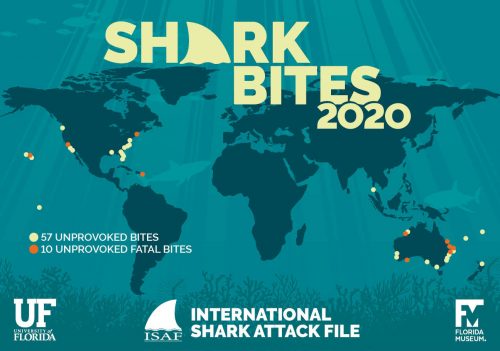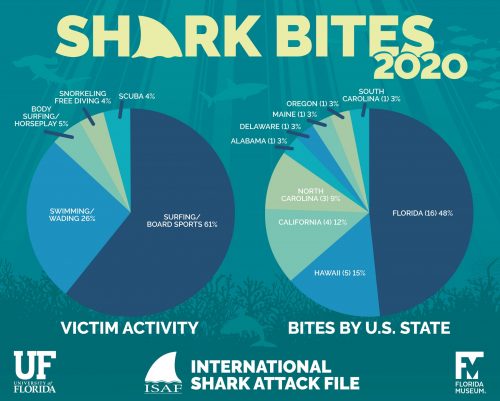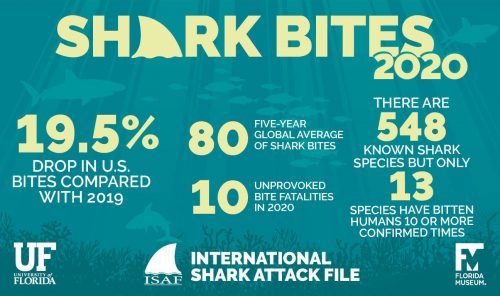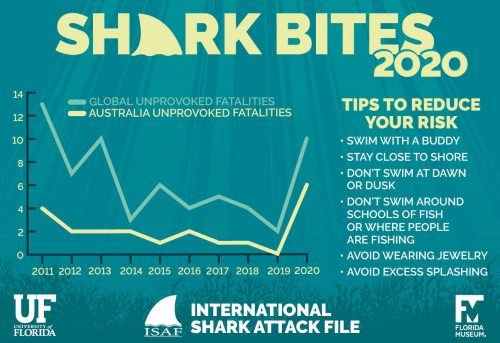Quick Links
2020 Annual Shark Attack Report
Excel file of 2020 annual report data
How to Reduce your Risk of Shark Attack
Shark attack numbers stayed ‘extremely low’ in 2020, but fatalities spiked
By Natalie van Hoose




Main Take-Aways
Risk of being bitten by a shark remains extremely low
The 10 year trend still shows both fatal and non-fatal bites to be decreasing. This year’s increase in fatalities does not necessarily constitute a shift in the long-term trends.
At this time, there is no evidence that the recent spike in Australian fatalities is causally linked to any natural phenomena. It is likely the product of chance, a conclusion underscored by the fact that the number of unprovoked bites in Australian waters is in line with recent five-year trends.
The effects of COVID-19 on bite numbers
While the incidence of bites both in the U.S. and globally have been declining, 2020’s numbers represent a more drastic drop than would be expected based on an analysis of long-term trends. As we first reported in June, the observed drop in shark bite incidents may have been caused by the widespread quarantines, closed beaches, and minimized vacation travel in response to the COVID-19 pandemic. As ISAF continues to investigate the high number of “Not confirmed” cases from 2020, we may find that the frequency of bites was more in line with previous trends.
